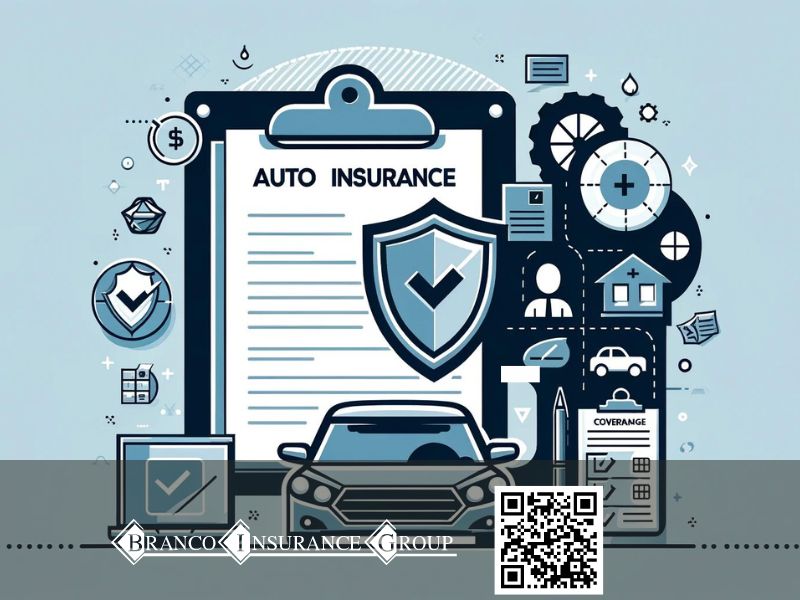Purchasing auto insurance is an important part of vehicle ownership that helps provide critical financial protection in the event of an accident or other damage to your car. This comprehensive guide will walk through everything drivers should understand about auto insurance coverage, including the different types available, what factors impact your premiums, how the claims process works, and tips for getting the settlement you deserve.
What is Auto Insurance?
Auto insurance is a contract between you and an insurance company that helps pay for expenses related to your vehicle in case of covered incidents. By paying a monthly or annual premium, the insurance company agrees to pay out a certain amount, according to your policy terms, if you file a claim for a covered loss like an accident, theft, vandalism, or other vehicle damage.
Auto insurance protects drivers in a few key ways:
- It covers damage you unintentionally cause to other people’s vehicles or property with your car.
- It pays for injuries to other drivers, passengers, pedestrians, motorcyclists, and bicyclists when you are deemed responsible for a collision.
- It pays to repair or replace your own vehicle after covered events like accidents, theft, or natural disasters.
Carrying adequate auto insurance is required in most states and critical for drivers looking to protect their finances from the high costs that come with accidents and vehicle repairs or replacement.
Do You Need Auto Insurance?
In almost every state some level of auto insurance is legally required. Liability coverage specifically helps pay for property damage and bodily injuries you cause to others when driving your car.
These amounts provide basic coverage, but accidents often cost more than the minimum limits, especially if multiple vehicles or injuries are involved. That’s why many experts recommend carrying more than the absolute minimum liability coverage required.
You also need to have auto insurance if:
- You have an outstanding loan or lease on your vehicle. Lenders require additional coverage like collision and comprehensive to protect their investment until the car is paid off.
- You want protection for your own vehicle in case it’s damaged or stolen. Liability coverage alone won’t pay for repairs or replacement if your own car is impacted.
- You don’t want to pay thousands out of pocket if you cause property damage or injuries in an at-fault accident.
Key Types of Auto Insurance Coverage
Auto insurance policies bundle different types of coverage that work together to provide complete protection. The key types of coverage drivers should understand include:
Liability Insurance
There are two main components of liability coverage:
- Bodily Injury Liability: Pays medical expenses of other drivers, passengers, motorcyclists, bicyclists, and pedestrians injured in an accident you cause. Also covers lost wages, rehabilitation, funeral expenses, and pain and suffering damages in severe injuries.
- Property Damage Liability: Covers the cost of repairing or replacing another driver’s vehicle or other property like buildings, fences, or utility poles you damage in an accident.
Liability insurance helps protect your finances if you cause an at-fault accident. Without it, you could be sued directly by those you injure or whose property you damage in a wreck.
Collision Insurance
Collision coverage pays to repair or replace your vehicle after an accident with another car or object. For example, if you crash your car into a guardrail, pole, or another vehicle, collision helps pay for repairs or the value of your car if it is totaled.
Collision is often required if you have an outstanding auto loan or lease on your vehicle. It may have a deductible amount you pay out-of-pocket before coverage kicks in.
Comprehensive Coverage
Comprehensive insurance helps pay to replace or repair your vehicle if it is stolen or damaged by something other than a collision. This includes:
- Theft
- Vandalism
- Flood
- Fire
- Hail
- Animal collisions
- Falling objects like trees
- Glass damage
Like collision, comprehensive coverage is usually required by any lienholders until a vehicle is paid off. It is an optional coverage for vehicles you own outright.
Uninsured and Underinsured Motorist Coverage
Uninsured motorist coverage provides protection if you are in an accident caused by a driver with no liability insurance who then cannot pay for your vehicle repairs or medical expenses.
Underinsured motorist coverage kicks in when the at-fault driver has insufficient limits to cover the costs of your damages or medical bills.
These coverages protect you when other drivers fail to carry adequate insurance. Without them, you could be stuck covering the cost of injuries or property damage another driver caused out of your own pocket.
Personal Injury Protection
Known as PIP coverage, personal injury protection helps pay medical expenses, lost wages, household services, and even funeral costs after an accident. It applies no matter who is at fault and often carries a small or no deductible, making it more readily accessible for urgent expenses right after an accident.
Other Common Auto Insurance Options
In addition to the major types of coverage above, most auto insurance policies also include a few other offerings like:
- Rental reimbursement – Helps pay for a rental car for a short time while your vehicle is inoperable due to repairs after a covered loss.
- Roadside assistance – Pays for roadside help like towing or flat tire changing.
- Custom parts coverage – Extends comprehensive and collision protection to aftermarket parts or equipment like stereo systems, chrome wheels, lift kits, or other upgrades.
What Auto Insurance Typically Does NOT Cover
It’s just as important to understand exclusions and situations where auto insurance will NOT provide reimbursement or repairs:
- Regular maintenance, repairs, or replacements – Insurance is for unforeseen, random events causing damage. It does not pay for mechanical breakdowns, oil changes, new tires, or other maintenance.
- Wear and tear – Gradual damage like paint fading or surface rust due to age is not covered.
- Pre-existing damage – Damage your car had before you took out the policy or preexisting mechanical issues will not result in claim payments later on. Insurance only covers additional damage occurring during the policy period.
- Intentional damage – Damage you or another driver intentionally inflicts is generally excluded.
- Certain drivers – Policies may exclude coverage for drivers under a certain age like 25 or those with serious driving offenses on record.
- Commercial use – Using your vehicle for business often requires a commercial policy with different terms than personal auto coverage.
A good auto insurance agent will explain all the intricacies of what is and is not covered and help you select adequate limits. Be sure to read your policy documents closely as well.
What Factors Impact Your Insurance Premiums?
Auto insurance companies use a number of determinants to calculate your insurance rates or premiums. The exact formula varies by insurer, but commonly considered factors include:
- Driving record – Multiple accidents, moving violations like speeding tickets, DUIs, or reckless driving offenses often substantially increase your rates.
- Vehicle type – Insuring sports cars, luxury vehicles, or trucks often costs more due to repair costs, accident rates, or theft risk.
- Gender and age – Statistically, younger drivers and males tend to have higher accident and violation rates which may increase base rates.
- Location – Premiums are usually much higher in dense urban areas than rural zones.
- Credit history – Insurers often check credit when underwriting policies. Poor credit can correlate with higher premiums.
- Annual mileage – The more miles you drive annually on average raises insurance company risk.
- Years insured – Longer tenure with the same provider often results in multi-policy and loyalty discounts to lower rates.
- Prior coverage lapses – Gaps in maintaining continuous insurance can increase your costs.
- Deductible amount – Choosing a higher deductible amount reduces monthly premiums but means you pay more out-of-pocket when you file a claim.
Comparing quotes with the same coverage amounts helps ensure you get the best rate possible. Maintaining a clean driving record, improving your credit score over time, asking about discounts, and opting for higher deductibles when finances allow are all smart ways to help control insurance costs.
How Does the Auto Insurance Claims Process Work?
The basics of filing an auto insurance claim include:
- Reporting the incident – You must contact both the police after any accident as well as your insurance provider promptly after the event occurs. Provide detailed information to your insurer regarding where/when the damage occurred and how the loss happened.
- Filing the claim – Work with your insurer to formally file a claim including any proof of damages, medical records, accident reports, and other documentation to support your request.
- Damage appraisal – An insurance adjuster working for your company will calculate repair costs for your car or determine if it is a total loss. You may secure separate damage repair estimates as well from body shops.
- Reviewing coverages – Based on your policy terms and coverages, your insurer will determine what specifically they can cover related to the claim. They’ll outline their settlement offer in a letter.
- Settlement or payment – Once an agreement is reached on what damages or amounts your insurance company will pay for, your final payment will be issued according to state law claim payment deadlines. If repairs are approved as opposed to a total loss payout, your vehicle can then be fixed at an approved shop of your choice.
It’s imperative during this process to be completely forthright about how the accident or incident occurred. Adjusters investigate to prevent fraud. Also, be responsive to your insurer’s requests for additional data in a timely manner to speed resolution of your claim.
Tips for Getting a Fair Auto Insurance Settlement
If your insurer makes you a settlement offer that seems too low or unfairly denies certain damages in your claim, you do have options to pursue more adequate reimbursement including:
- Send a formal appeal letter contesting the claims decisions and provide supplementary documentation to justify a higher payout amount.
- Ask for mediation if available in your state to work through claim disputes confidentially with an impartial mediator.
- File a complaint against the insurer with your state insurance regulator for perceived unfair claims handling processes.
- Consult an attorney for advice or legal assistance negotiating disputed property damage or injury claims.
- Take the at-fault driver to small claims court if they were uninsured/underinsured to directly pursue compensation from them. This is easier for straightforward property damage amounts versus complex bodily injury claims.
Whenever submitting appeals or complaints, always remain polite and stick to just the facts of your case. Include evidence like repair estimates, crash scene diagrams, or medical records to strengthen your position.
If negotiations fail and a settlement can’t be reached, you always have the right to then withdraw your initial claim and pursue legal action directly against the at-fault driver instead to recover your costs.
Key Takeaways
Protecting your assets and finances with adequate auto insurance is essential for every vehicle owner. While liability coverage is mandatory, drivers often benefit by adding collision, comprehensive, and other protections.
There are many complexities and exclusions involved however, so working with a qualified independent insurance agent in your area is the best way to secure complete, customized coverage that fits your specific situation.
Besides explaining your options, local agents assist when you need to file a claim and provide guidance for resolving settlement disputes as well through appeals or outside legal channels when necessary.
Understanding exactly what is covered and what impacts your auto insurance premiums allows you to have informed, realistic expectations about the claims process. Hopefully this overview better equips you to make wise choices in purchasing a policy tailored to all your coverage needs and budget.
Final Thoughts
At Branco Insurance Group, our goal is to provide you and your family or business with the best possible protection to secure your future. As an independent agency representing many highly-rated carriers, we have the expertise to configure customized coverage that truly fits your unique needs and budget.
Whether you need to insure a home, auto, motorcycle, or more, our experienced local agents make it simple to compare plans side-by-side to find the right fit. We are always available to answer questions, tweak policies as your life changes, and ensure you receive superior service when filing claims. Our 5-star customer satisfaction ratings demonstrate that we continually meet expectations.
Unsure what policies match your situation or wonder if there are savings to unlock on premiums? Contact us for a free consultation. We’ll outline helpful recommendations so you can make fully-informed decisions to safeguard what matters most – from people to possessions. At Branco Insurance Group, we handle the insurance complexities so you can enjoy greater peace of mind.





